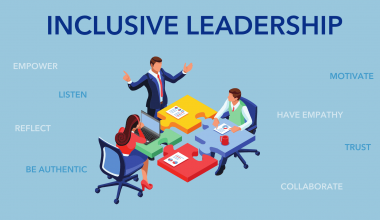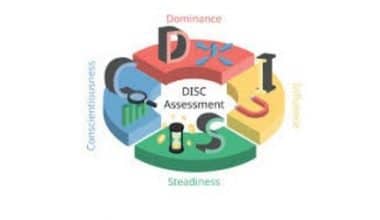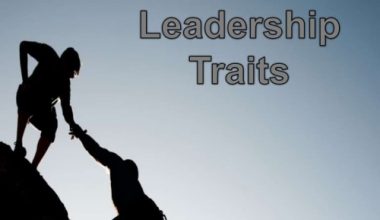Success in the workplace, in school, and in daily life can all be affected by how we perceive ourselves and our skills. However, not everyone takes the time to reflect on their own thought processes, and as a result, they may make inaccurate judgments about their own abilities. A growth mindset is the conviction that one’s talents, intelligence, and accomplishments can be nurtured and enhanced by focused effort and sustained effort over time. One of the many advantages of adopting a growth mindset is the increased emphasis it places on education and personal development. Read on for more inspiring quotes and concrete examples of how a growth mindset may help you succeed in education.
What Is a Growth Mindset?
A growth mindset is the conviction that one’s abilities may be enhanced through practice, strategy, and the support of others. Carol Dweck, a psychologist at Stanford University, is generally credited as the creator of the growth mindset concept. With her book “Mindset: The New Psychology of Success,” she first shared this concept with the world.
Furthermore, Dweck uses this book to show that there are two types of people (students in particular). There are two types of people in the world: those with a growth mindset and those with a fixed mindset.
Those who hold a growth mindset consider intelligence and talent to be malleable traits. They think that while everyone is born with unique skills and abilities, true success can only be achieved by continuous improvement.
What Are the 4 Key Ingredients to a Growth Mindset?
Growth is the driving force behind every successful individual, company, and brand. The development of a person depends on their mindset, not luck. A “growth mindset” is a way of thinking that considers learning and experience to be ongoing processes. And there are many elements to this outlook that combine to make an effective leader. Take the reins and steer your company toward success. Develop a Growth mindset to grow into a position of leadership.
Also, a growth mindset isn’t just some trendy phrase you need to know; it’s the bedrock of any kind of achievement. It is the defining characteristic of a person of substance and a leader. A person with a growth mindset sees and deals with the world from the perspective of never stopping to learn and improve. Here are the 4 key ingredients to a growth mindset.
- Effort. Knowing that you must make an effort in whatever you wish to develop is crucial, significant, valuable, and leads to development.
- Challenges. You must look at difficulties as learning experiences. Challenges are good because they force you out of your comfort zone and help you develop to your full potential.
- Mistakes. Don’t despise, shun, or become disheartened by them; rather, use them as stepping stones to greater success.
- Feedback. Don’t take criticism personally and avoid getting defensive if you receive it. Recognize its value and put it to good use.
Furthermore, a growth mindset sheds egocentric pretensions in favor of adaptability, accepts criticism as a means of improving, and incorporates useful information into its reasoning and actions. This is the mentality of any and all leaders, regardless of time period or field. This way of thinking is essential in today’s rapidly developing world. Today is a day and age where speed, dexterity, and adaptability are appreciated.
Characteristics of a Growth Mindset?
Is there a way to test one’s growth mindset? The solution may appear straightforward at first glance, but it’s not always so simple. Since we all adopt various attitudes depending on our current situations, it is impossible to have a purely growth mindset. For instance, you can be more daring in your professional endeavors yet more adverse to change in your personal life. Despite the fuzziness of the distinction between the two frames of mind, there are certain indications that indicate whether or not you have a growth mindset.
Five major characteristics of a growth mindset are as follows:
#1. Accepts Mistakes as Learning Opportunities
Successful people have come to accept and even celebrate their own flaws and errors. Those who have a growth mindset view failures as stepping stones to future success. They consider the future after examining the causes of the error. Flaws and errors are seen as insurmountable roadblocks by those with fixed mindsets. People who have development mindsets are the only ones who can learn from their mistakes.
#2. Recognizes Failure as Part of Learning
A person with a fixed attitude feels embarrassed by setbacks and lacks the drive to succeed. Some people succumb because they are too afraid to begin again. The fact that you’ve experienced setbacks in the past shouldn’t discourage you from trying again. A person with a growth mindset is one who is not afraid of failure or starting over. The pressure doesn’t affect him at all. He understands that he cannot relax until he accomplishes his goals.
#3. Considers Intelligence a Skill
Achieving one’s full intellectual potential is similar to the rarity of an overnight sensation. Everyone is on a path to accomplish something, and that something is usually something that requires hard work and dedication to master. Furthermore, those who think in a fixed mindset won’t accept the fact that anyone can improve their IQ with hard work and dedication. A growth mindset acknowledges that with effort and time, one’s innate intelligence can be nurtured and developed.
#4. Accepts Challenges and the Possibility of Falling Short
What makes us human is how we respond to challenges. They encourage and challenge us to develop. People who have what’s called a “growth mindset” view challenges as an opportunity to learn and develop their skills. Those who try to avoid problems may never get the outcomes they desire. Popular wisdom states that “what doesn’t kill you only makes you stronger.” The point of tests is to see how far we’ve come, not to put us in a state of fear.
#5. Receptive to Remarks
Being receptive to criticism is yet another growth mindset characteristic that could aid in one’s personal development. If you have a fixed mindset, you think that other people’s successes are a threat to your own. We must, however, view criticism of our efforts as beneficial. A person who values personal development will be more sensitive to constructive criticism. Encouragement from others allows us to zero in on our weaknesses and figure out how to fix them. A person with a fixed mindset is not open to new information and will instead likely refuse to change their opinion. Even if you’re convinced your work is flawless, it’s smart to get feedback from others.
Why Is Growth Mindset Important
Whatever perspective you adopt, it can have far-reaching effects on your success and sense of yourself down the road.
A person with a growth mindset is one who is resilient, enthusiastic about learning, and quick to recover from failure. A person with a fixed mindset is less likely to try new things and more likely to give up when faced with challenges.
Children, in particular, would benefit greatly from cultivating a growth mindset since it would encourage them to be more dedicated to their education career. Children that have a growth attitude are less prone to give up and are more open to trying new activities.
Also, children with a fixed perspective, as opposed to a growth mindset, may have more trouble achieving their full potential because of their inability to adjust to adversity. After receiving a low test score, these youngsters are more likely to say things such as, “I’ll never be able to spell.”
Constructive criticism, rather than simple compliments like “you’re very good at this” or “you can’t do that very well,” is preferable when speaking to children.
What Are Steps To Develop a Growth Mindset?
There are steps you may take to foster a growth mindset if you decide it is a desirable trait. Dr. Dweck’s research shows that most people do not have either a fixed or a development mindset but rather fall somewhere in the middle.
It’s also important to note that not everyone will succeed at every endeavor they undertake. While effort, persistence, and mental fortitude can take you far, we all have our limits. In addition, success is often determined by a combination of circumstances other than one’s attitude. Here are effective steps to develop a growth mindset.
#1. Know the Why
One way to assess one’s current frame of mind is to think about one’s approach to problems at work or school. Is it true that you often tell others that you are “a natural people person” or that you “have learnt to work well with people”? Alternatively, you may state that she “worked her way up to the leadership role” or that “she’s a natural leader.”
You may determine whether you have a more fixed or growth mindset by answering questions like these about how you view the world. Having this kind of insight is the first step in making changes that could completely alter the trajectory of your professional life.
#2. Evaluate the Progress You’ve Made
Consider an area in which you have improved since you last tried it. What was it that you had trouble with before? How come it seems simpler now? How did you manage to make such a dramatic shift?
The characteristics of a growth mindset are ideas like these, which encourage you to reflect on the time and effort you’ve put into improving in specific areas.
#3. Rethink the Concept of Failure
Change your perspective on failure and see it as an opportunity to grow and improve. When we experience setbacks, we are redirected to the steps we should take to ultimately succeed. When we make mistakes, we learn from them and we move closer to our goals. Also, when we achieve something good, we always have to take a step back before we can move forward again, and we never become experts at anything without making some mistakes along the way.
#4. Develop a Strategy for Achieving Your Aims
It is essential to establish objectives for yourself that are attainable if you want to maintain your motivation and stay on track. Although it’s a good thing to strive for great things, you need to be sure that the objectives you set are ones that you can truly complete. When you create goals that you are aware you can actually do, you put yourself in a position to succeed and actually accomplish these goals, which will further inspire you. It’s vital to get your feet wet with manageable objectives and then work your way up to more difficult challenges, but it’s also critical to get off to a good start by beginning with something simple.
#5. Take Note of Your Behavior and Words
Take note of the way you discuss your abilities. Do you frequently use phrases such as “I’m no good at this” or “She’s just naturally talented”?
Take away the “perfect” and replace it with “I’m not great at this yet.” “She’s obviously put in a lot of effort to become so talented,” etc. Pay attention to the way others around you talk and act, and actively seek out and cultivate relationships with those who share a growth attitude.
#6. Celebrate Both Big and Modest Accomplishments
It’s important to recognize and appreciate even the smallest victories. Although individual accomplishments may not appear significant, the cumulative effect of several such accomplishments can be substantial. You may reward yourself for both minor and major accomplishments by treating yourself to something you truly enjoy. Small victories could be celebrated with a cup of coffee and a sweet treat, while larger ones could spur plans for a group outing with friends and family.
#7. Give up the Need for Acclaim
The development of a growth mindset might be hampered by worrying about the opinions of others. Pay attention to how you treat yourself. When we’re content with who we are, we give less thought to what other people think. After all, our own opinion is the one that matters most. No matter who comes and goes in your life, you are the one who will always be rooting for and encouraging yourself, so have faith in yourself. There is no one else to worry about but yourself.
#8. Prioritize Development Above Speed
The development of a growth mindset is in direct opposition to the bad habit of always being in a hurry. When we are in a hurry, we tend to overlook crucial nuances and pass up valuable learning opportunities. Instead, take your time and commit yourself entirely to the steps you need to take to reach your destination. There is a strong correlation between the amount of care put into each step of a process and the quality of the final product.
#9. Appreciate the Process
The most important lessons are frequently acquired over the course of study and effort put forth. While reaching a goal is certainly impressive, the struggles endured in order to get there are just as noteworthy. Take things slowly and you will get there in the end. Don’t worry about a “ticking time bomb” because good things will happen at the precise moment they are supposed to. Your good fortune will come at the right time.
What Is Growth Mindset in Education
In many classrooms, students are made to believe that their innate talents and skills are set in stone, that they excel in some areas but not others. Students who hold this view may experience emotional distress when they encounter obstacles or fail to meet expectations. They’ve convinced themselves that their lack of talent means they’ll never succeed in that area. When pupils are made aware, however, that their innate talents are malleable, they are inspired to develop and improve upon their skills.
A growth mindset, which is promoted through this method of instruction, holds that one’s innate qualities and skills may be developed further by consistent practice and effort over time. Teaching pupils to have a growth mindset in their education career means encouraging them to see setbacks as opportunities for improvement. Work is a means to an end in the pursuit of education. Motivating pupils to have a positive mindset and assuring them that they possess the requisite skills for academic growth inspires confidence and leads to greater achievement in education.
How Does Growth Mindset in Education Work?
Teachers should have a development mentality themselves before attempting to instill one in their students. Carol Dweck advises teachers to start by tuning in to their own thoughts. Do these opinions rate or classify students according to their skills? In that case, you should ask yourself, “What can I do to unleash this student’s motivation?” How come this student can’t seem to get anything out of school? Respond appropriately to these concerns.
Educators should adopt a growth mindset when it comes to their own pedagogical skills. They should also seek the opinion of their peers if they are stuck on how to help their students reach their full potential. The educator’s own skill set can only benefit from the lessons learned in the course of teaching.
Furthermore, Dweck emphasizes the importance of the nature of feedback offered to students when encouraging a growth mindset. Teachers often compliment students on their intelligence as a means of boosting their confidence and morale. In contrast, research shows that when teachers praise students for their effort and the process they went through to reach their goals, children acquire a growth attitude. Motivate your kids to push themselves to their limits and keep going even when things get tough. Encourage kids to know that their efforts and risks are appreciated.
How Can You Encourage a Student Growth Mindset?
Here are ways teachers should encourage student growth mindset.
- Putting a greater emphasis on students’ efforts and growth rather than their successes and failures
- Motivate students to study in-depth by stressing the importance of a thorough understanding over a speedy one.
- Make learning the focus, not intelligence, by fostering an environment where kids believe their professors are invested in their success.
- Taking risks, making an effort, and succeeding in spite of setbacks are more highly prized than innate ability.
- Feedback that emphasizes students’ efforts rather than their intelligence increases the belief that pupils can keep learning. Students who are commended for their intelligence lose faith in their ability and love of assignments as soon as they encounter difficulty, while those who are rewarded for their effort maintain their faith and enthusiasm throughout the learning process.
- Teachers commonly classify or label pupils, such as “smart students” or “slow students,” however these phrases significantly affect students’ mindsets and performance.
- Implement strategies to foster a learning mindset: Instill in your children the belief that their IQ can grow and develop with exercise and effort, just like any other muscle in the body.
- Students should be graded according to their progress; when they declare they can’t do something or aren’t good at something, teachers should add the word “yet” to show that their ability is still developing.
- Inspire them to learn more about a specific area of interest or ability. That ability is malleable is the implication.
- Tell the class to think of a buddy they’ve known the longest who has changed the most. The conviction that people may change as a result of this exercise has been demonstrated to be lasting.
Growth Mindset Quotes
The key to helping someone develop a growth mindset is to use encouraging words. As we’ve already established, talking to oneself is crucial. It’s a great technique to help kids shift their perspective and realize that they have the potential to accomplish everything they set their minds to. Here are some encouraging growth mindset quotes to share with kids at home or in the classroom:
- Great works are performed, not by strength, but by perseverance._Samuel Johnson
- It does not matter how slowly you go so long as you do not stop._Confucius
- The very best thing you can do for the whole world is to make the most of yourself_Wallace Wattles
- You’re in charge of your mind. You can help it grow by using it in the right way._Carol Dweck
- Developing into an adult and accepting who you truly are requires bravery._E.E. Cummings
- Ask ˜How will they learn best? not ˜Can they learn?_Jaime Escalante
- Don’t fret over potential setbacks. Worry about the opportunities you pass up because you didn’t attempt._ Sherman Finesilver
- You need to put in the effort to improve a little bit every day. Making incremental improvements every day adds up to significant growth in the long run._John Wooden
- Do the thing you fear the most._Emerson, Ralph Waldo
- Having to overcome obstacles is what keeps life exciting. Those challenges are what give life its significance._Marine, Joshua J.
Growth Mindset Examples
It’s helpful to draw attention to specific differences between the two stances in order to get a better grasp of what a growth mindset entails. Here are a few growth mindset examples.
- You like to see things from many angles. Books are a fantastic way to expand your horizons and learn about topics you might not have otherwise explored. If you approach a new topic with an open mind, you may be able to see familiar obstacles in a new perspective and find solutions to them more quickly.
- You work steadily toward your objectives, day by day. Small, beneficial behaviors incorporated into your everyday routine, such as meditation after brushing your teeth, can lead to big changes over time.
- You push yourself beyond your usual limits. Attempt a task at which you are completely inexperienced. Take up a new pastime, join a new team, or push yourself to do something you’ve never done before, like giving a public speech.
- To put it another way, you learn to accept life as it comes. Don’t get discouraged if your efforts to adopt a growth mindset don’t bear immediate fruit. Instead, be constant in your approach. Just keep doing what you’re doing and believe that the results will come.
The Benefits of a Growth Mindset
Everyone, but students in particular, can benefit greatly from adopting a growth mentality. It’s crucial that students come to school with the correct frame of mind to take advantage of the many challenges and opportunities provided to them as they learn and grow.
The advantages of adopting a “growth mindset” include the following:
#1. It’s a Stress-Reliever
The primary and secondary school years can be particularly trying for young people. They are continuously faced with fresh obstacles that they must conquer. Stressful examinations and exams are a reality that children will have to confront later on in their academic careers. The ability to deal with adversity can be greatly enhanced by teaching children to adopt a development attitude.
Furthermore, students who adopt a growth mindset are more likely to rise to the occasion in their education career when faced with tests or other significant deadlines. This is because they are able to take setbacks in stride, rather than seeing them as fatal, and instead treating them as challenges to be overcome and lessons to be learned. Exams and other potentially life-or-death circumstances are less stressful as a result.
Because a growth mindset boosts children’s mental health and academic progress, it also reduces their stress levels, making it a win-win.
#2. Helps Children Adjust to New Situations
One of the constants in life is change, and nowhere is this more apparent than in the educational system. Students will have to adapt to a dynamic world, curriculum, and social scene. In the absence of coping mechanisms, this level of change can be extremely upsetting for children.
Children who adopt a growth mindset learn that change is not something to fear and, rather, is an opportunity to improve. When children adopt this outlook, they will no longer see change as a threat but as a chance for personal development. Furthermore, youngsters who adopt a development mentality are better able to deal with uncertainty because of the flexibility that comes with it.
#3. It Elevates Kids’ Self-Esteem
Possessing healthy levels of self-esteem are crucial at any age. Self-confidence increases significantly when you adopt a growth mentality. Weird, right?
Your perception of your own skills and potential will be more in line with reality if you adopt a growth mindset. This is because you are always trying new things in an effort to fix your weaknesses and bolster your strengths. You’re continually being challenged to face your shortcomings, but not in a demoralizing way; rather, you’re being encouraged to see your inadequacies as stepping stones to your eventual triumph. Having the belief that anything is possible if you set your mind to it is a great boost to one’s sense of self-worth.
#4. It Educates Young People to Look For and Value Feedback
One more advantage of a growth mentality is that it teaches children how to deal with criticism. Finding the areas that need improvement is one of the essential phases in development. You need to solicit input in order to do this.
Kids that have a growth mindset will learn the value of receiving feedback on their academic performance. Additionally, it will lead them on a road of ongoing self-improvement, which will help them in all facets of their lives. This kind of thinking also encourages children to be more open-minded. Children must search for the value in another person’s perspective and opinion when they receive evaluation from someone else, whether it be a teacher or another student. Once more, this is a skill that will serve them well in the real world.
Conclusion
Many researchers have found potential benefits of growth mindsets, but there is also some conflicting data on their efficacy. It makes sense that such a mindset, when coupled with other advantages, can help you grow and learn.
Hopefully, the growth mindset examples and advice we’ve given should help you evaluate whether adopting this perspective would be useful for your personal circumstances. You may make progress toward your goals and grow as a person by pushing yourself to your limits and never stopping your education.
Growth Mindset FAQs
Is Growth Mindset a Skill?
Yes growth mindset is a skill. It is the most sought after of all the softer skills this year is a growth mindset. This is even more crucial in light of the fact that the majority of work categories are becoming increasingly robotic.
How do you demonstrate growth mindset at work?
- Foster Originality. Give your staff clear direction on what they’re expected to do, but let them figure out how to get it done on their own.
- Facilitate Inter-Disciplinary Study and Mentoring
- Have Patience With Your Studying
- Encourage people to take part.
Similar Articles
- LAUNCHING YOUR SMALL BUSINESS THIS YEAR? Hold On To These Success Tips
- Sales Associate: Job Description, Skills, and Salaries
- THE MIND OF A SUCCEEDING ENTREPRENEUR
- 11 Ways to Improve Your Odds as an Entrepreneur






